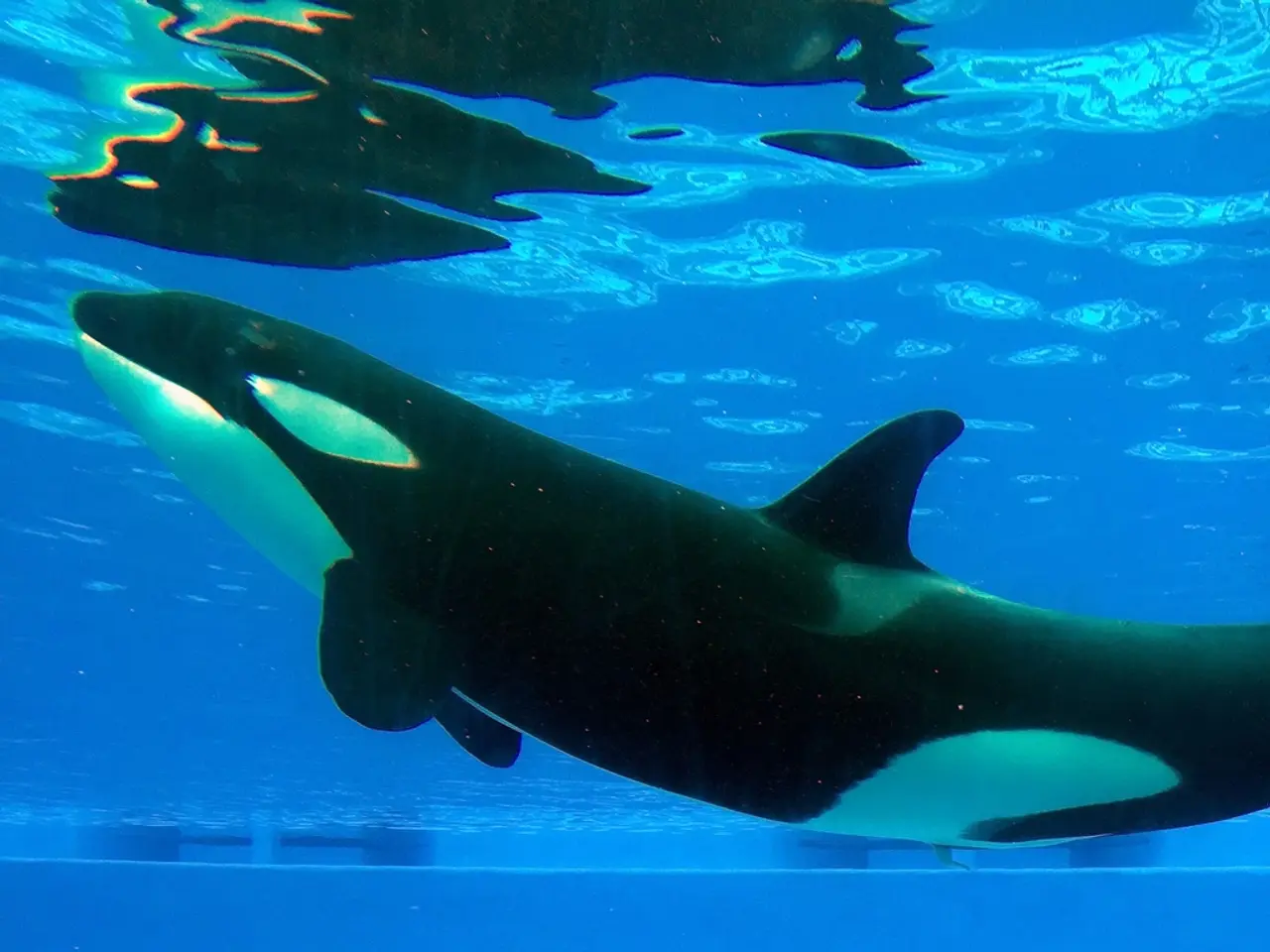Baring the Keys to Whale Hunt: A Modern Perspective
Methods Used in Whaling Activities
Ever since the primitive man embarked on his conquest of the oceans, whales have been a coveted prize. Their meat and blubber provided a sustenance to survive the harsh climate and fuel fires in the darkest of nights. For thousands of years, resources like vegetables were hard to come by for the Inuit and Greenlandic natives making whale meat and blubber their staple diet [Palmer]. The population's essential nutrients and calorie requirements were met through this unlikely food source [Tevuk]. Aside from serving as a vital source of nutrition, whale parts were utilized for crafting implements, fueling lamps, and constructing sleds.
Japan, too, erected a historical bond with whales, amidst the post-World War II devastation. Whale meat was a cost-effective protein source for a nation beset by postwar hardships. It found its way onto lunch trays for schoolchildren across the country from the late '40s to the early '60s [McCurry]. However, the enthusiasm for whale meat has waned significantly among the younger Japanese, with a Nippon Research Centre poll claiming that 95% of the contemporary population seldom or never consumes whale meat [Nippon Research Centre].
The lure of whale oil attracted whalers from all corners of the globe as it fueled economic growth in nations such as the United States, Great Britain, Germany, and Norway. Whale oil was used in a multitude of products, ranging from soap and candles to margarine and cosmetics [Pees]. The oil-rich whale, specifically a sperm whale, could produce upwards of 25 to 40 barrels, accelerating the growth of commercial whaling [Pees]. Even as petroleum took over as the primary fuel source, the hunt for whales continues to this day, albeit under the international commercial ban imposed by the International Whaling Commission (IWC). Both Japan and Norway challenge this ban, with Japan citing scientific research and Japan-specific hunting permits under Article VIII of the International Convention for the Regulation of Whaling [Chaon].
Whales, however, are not without advocates. Critics argue that the hunting of whales is a barbaric practice that endangers the survival of certain whale species. Nonetheless, the allure of tradition, food, and perceived scientific utility continues to perpetuate this age-old pursuit. To the purists, everything from the taste and texture of whale meat to its cultural significance is a testament to their ancestral heritage, begotten from survival and necessity. The debate surrounding whaling rages on, with voices of conservations and preservation adding to the din of discordant opinions that characterizes this polarizing issue.
To Hunt Indigenous, Cultural or Just a Source of Revenue?
- Cultural Tradition: Certain communities, like the Inuit and Faroe Islanders, view whale hunting as an integral part of their cultural identity. Harpooning, driving whales, and other traditional whale hunting practices continue to be passed on, generation after generation [Ellis].
- Scientific Rationale: Whaling proponents argue that they must hunt whales to study and learn about them. However, modern science has questioned the necessity of lethal whaling for scientific research, as non-lethal methods such as biopsies can provide the necessary information [McDonald].
- Food Source and Revenue: In places like Japan, Norway, and Iceland, whale meat is considered a delicacy and important food resource. Iceland's recent pause in fin whale hunting highlights the diminishing demand for this controversial product [Chaon].
Taste Test: The Verdict
Dubbed as the 'oceanic version of steak,' whale meat mimics the taste of reindeer or moose. Although the availability of spices may vary, historically, the taste of whale meat took a back seat to necessity [Palmer]. Today, it is served with sparing use of seasonings in places like Norway, Iceland, and Alaska.
In sum, the debate surrounding whaling is as complex as the nuances of whale songs themselves. The traditions, cultural values, scientific reasoning, and economic interests are intertwined, making it a challenging conversation to navigate. Yet, it is vital to ensure the survival and protection of these gentle creatures, as they play a crucial role in the world's ecosystem.
References:
- McDonald, R. (2017, May 1). Advances in non-lethal whale research. BBC News. https://www.bbc.com/earth/story/20170501-advances-in-non-lethal-whale-research
- Ellis, K. (2020, July 9). Indigenous whaling gets a seal of approval. Pacific Standard. https://psmag.com/social-justice/indigenous-whaling-seal-of-approval-545907
- Palmer, B. (2019, November 26). Food Wars: Whale. Slate. https://slate.com/news-and-politics/2019/11/whale-meat-recipe-how-to-cook-make-sushi-steak-video.html
- Tevuk, L. (n.d.). Whale hunting. Royal Greenland. https://www.royalgreenland.gl/en/about-greenland/whalehunting-royal-greenland
- McCurry, J. (2018, June 20). Whale meat: the delicacy rejected by modern Japan. The Guardian. https://www.theguardian.com/world/2018/jun/20/whale-meat-japan-delicacy-rejected-modern-japan
- Chaon, S. (2019, December 3). Iceland and Japan Shift Tactics to Bypass International Whale Sanctions. Inside Climate News. https://insideclimatenews.org/news/23062017/iceland-japan-whale-meat-sanctions-sanctions-still-bowhead-miami-wildlife-conservation-solutions-sustainable-seafood
- Pees, S. (n.d.). Whale Oil. National Geographic. https://www.nationalgeographic.com/encyclopedia/whale-oil/
- Nippon Research Centre Poll (2006). Greenpeace Japan. https://www.greenpeace.org/japan/Global/japan/report/2007/whaling/2006-whale-meat-survey-english-text-summary.pdf
- Climate change and the degradation of the environment are causing concern for the future of the whale population, raising questions about the sustainability of whale hunting as a source of cultural tradition, food, or revenue.
- The taste and texture of whale meat are often compared to that of reindeer or moose, but with little to no variation in spices due to its historical origins as a necessity.
- Whale hunting has been established as a significant part of the cultural identity for certain indigenous communities such as the Inuit and Faroe Islanders, despite controversy surrounding the practice.
- Non-lethal methods of whale research have been developed, leading some to question the justification for lethal whaling under the guise of scientific research.






